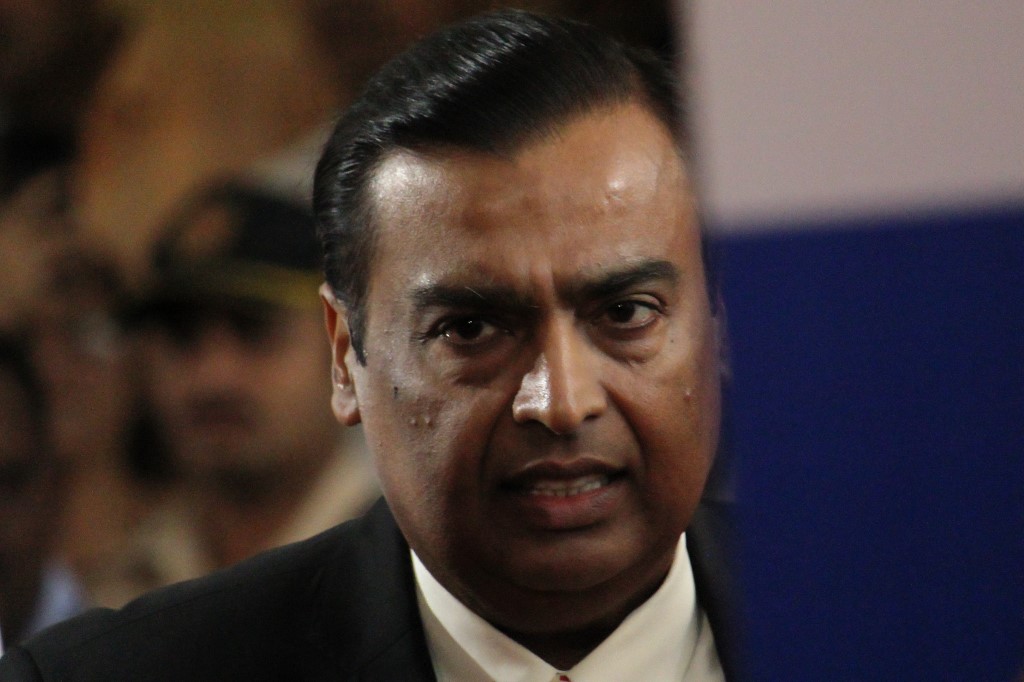(ATF) With millions going online to change the way they work and live – and shop and pay – Mukesh Ambani-controlled Reliance Industries (RIL) is joining hands with Facebook and Google to create a national payments network to capitalise on India’s expanding digital payments space.
Ambani, India’s richest man, now plans to be a global payments player, and has proposed a New Umbrella Entity (NUE) for payments services in a consortium with Infibeam Avenue – a local fintech company – Google and Facebook, according to reports.
RIL, which also runs the Jio Payments Bank, is aiming to offer payment services overseas pitting it not only against giants Visa and Mastercard in some markets, but also against the National Payments Corp of India (NPCI), the home-made digital payment ecosystem that dominates the space.
Read more: Tesla hails Chinese demand for record deliveries
Initiated by the central bank, Reserve Bank of India (RBI) and Indian Banks’ Association (IBA) in 2007, the NPCI is an umbrella organisation for operating retail payments and settlement systems in the country. NPCI has ten core promoter banks – State Bank of India, Punjab National Bank, Bank of Baroda, Canara Bank, Bank of India, HDFC Bank, Citibank, HSBC and ICICI Bank.
This non-profit structure functions under the provisions of the Payment and Settlement Systems Act 2008 and has created a robust payments and settlement infrastructure for the whole banking industry, both physical and electronic payment and settlements system.
NPCI operates the National Financial Switch (NFS), Immediate Payment Service (IMPS), Cheque Truncation System (CTS), RuPay – a new card payment system – as well as the Unified Payments Interface (UPI) and the Bharat Interface for Money (BHIM), to name a few.
BURSTING AT SEAMS
Since the pandemic, digital payments in India have exploded as Indians avoided cash payments. Led by categories such as bill payments and online shopping, UPI emerged as the core payment rail for processing digital transactions over the past year.
While NPCI has not yet released the transactions break-up figures for each of the components it operates, in February 2021 this ecosystem recorded total UPI transactions of 2.29 billion, compared to 2.30 billion in January.
Unconfirmed reports say the NPCI handled about half of India’s nearly 41 billion retail online transactions in 2020, which are expected to double this year.
The burgeoning volumes have also coincided with snags. For instance, according to RBI, transaction decline rates on UPI alone reported technical decline rates of just over 1% before the pandemic, and at least 10 banks reported decline rates of over 3% in October, November and December.
Payment apps such as Google Pay and PhonePe too had voiced concerns on social media about the increased payment failures on UPI.
RUSHING IN
To foster competition and “de-risk” India’s burgeoning digital payments ecosystem, where much of the settlement burden has fallen on the NPCI over recent years, the RBI last August issued guidelines for creating for-profit NUEs.
NUE players will be allowed to set up, operate and manage new payment systems as for-profit entities, especially in the retail space such as ATMs, white-label point-of-sale (PoS) terminals, and Aadhaar-based payments and remittance services.
NUE players will also be allowed to develop new payment methods, standards and technologies as well as operate clearing and settlement systems.
However, only Indian citizens with at least three years of financial services experience can set up a NUE, while foreign players are allowed to invest but only with Indian backers, that must hold majority stake.
But that has hardly been a deterrent. International as well as local companies are rushing in to grab a bigger share of Indian payments market as digital transactions leap ahead in the country.
SUPERSEDING CHINA
According to the latest study by payment solutions provider ACI Worldwide, digital payments are slated to account for over 71% share of all the payments in India by 2025, as the country superseded China in 2020 to claim the top spot with 25.5bn real-time payments transactions.
China followed with 15.7bn transactions, trailed by South Korea in 3rd place with 6bn, Thailand at 4th with 5.2bn and the UK in 5th place with 2.8bn
Aside from Ambani along with Facebook and Google, salt-to-software conglomerate Tata Group too has joined hands with HDFC Bank, Kotak Mahindra Bank, MasterCard and Bharti Airtel to float an NUE, said reports.
Among global players, e-commerce firm Amazon has tied up with Visa, ICICI Bank, Axis Bank and fin-tech start-ups BillDesk and PineLabs for a NUE licence, the application of which closed on the last day of March.
Softbank portfolio companies Paytm and Ola have also reportedly joined hands to apply for an NUE.
“As the pandemic continues to drive changes in consumer and business behaviours, banks, merchants and intermediaries across the payment ecosystem are responding rapidly, prioritising the shift to digital to protect current revenue streams, and searching for new ones through a fully digitised customer experience,” said the ACI report.






















